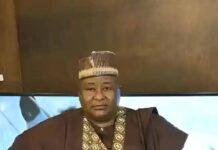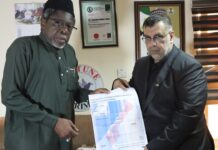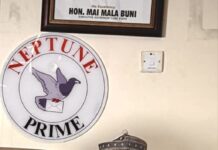“What I can do, you may not be able to do; what you can do, I may not be able to do. Let’s work together to create something incredible.”- Zainab Boni Haruna PhD
In this insightful Neptune Prime interview, H.E. Mrs Zainab Boni Haruna, Magayaqin Tikau, and Maman Mayina Kara open up about her remarkable journey through education, politics, and leadership. From balancing the roles of a mother, wife, and student while supporting her husband’s political career, to her two Senate contest attempts, she shares the challenges and triumphs that have shaped her vision for a more inclusive and empowered society. With a focus on resilience, collaboration, and the empowerment of women and youth.
NP: Name and indegene
My name is Mrs Zainab Boni Haruna PhD, Magayaqin tikau, maman Mayina kara. I am from Yobe State, but I married in Adamawa State. My husband is the former governor of Adamawa state, from 1999 to 2007.
Educational background:
I attended my Primary school in Bama and my secondary school at the federal government college Potiskum.
I earned my Bachelor’s degree at the University of Maiduguri, where I studied Political science, did my first master’s at the Federal University of Yola, where I earned my MBA, and then attended the University of Jos, where I obtained a masters in Political Economy and Development, then PhD at Nasarawa State University.
NP: Wow, earning four degrees from four different universities and states must have been a journey filled with remarkable experiences and exposure to diverse people, education systems, and cultures. How did you manage to balance the responsibilities of being a governor’s wife, a mother, and a student?
Life is indeed a series of events and experiences that shape who we are. My strong zeal and passion enabled me to endure and withstand the challenges that came my way. My husband became a governor when I was just 26 years old, during my NYSC. That period allowed me to relate more closely with people and gain a better understanding of societal dynamics.
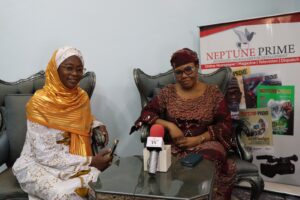
As a woman from Northern Nigeria, I recognized the unique challenges posed by our cultural expectations. Women here must often work twice as hard to meet these expectations. If we aspire to raise educated children and foster an enlightened society, we must first equip ourselves with education, for we cannot give what we do not have.
When I pursued my master’s degree in Yola, I was already a governor’s wife. It was not an easy journey. Some people questioned my presence, assuming I had no business earning a master’s degree because they believed my position in life was already secure. Others thought I was only there to collect a certificate, not to study. What they failed to realize is that we, too, are human. We have ambitions and aspirations that existed long before any title or position and will continue long after.

Attending school was transformative for me. It deepened my understanding of grassroots issues and inspired me to establish an NGO focused on empowering women.
Balancing my roles as a wife, mother, student, and politician taught me the incredible multitasking abilities women possess. I have seen married, pregnant women outperform single men with fewer responsibilities, proving that success stems from hard work and commitment, not gender.
There were times I sat for exams while in my third trimester or just days after childbirth. Despite these challenges, I ensured my children received exclusive breastfeeding to safeguard their health. When I began my political journey, there were instances when I paused campaigning briefly to defend my thesis or recover from childbirth through a cesarean section. I even went on campaign tours with my babies in the car.
Women like me often have no choice but to embrace challenges head-on and work hard. While my campaign team rested, I would return home to fulfill my duties as a mother.
In school, I knew I had to work harder than others because people expected me to fail. I refused to allow anyone to discredit my efforts. I was always punctual for lectures, diligent in completing assignments and seminars, and committed to proving my dedication. Over time, my lecturers and fellow students came to respect my seriousness and were impressed by my determination.
This journey has taught me that hard work, resilience, and a willingness to embrace challenges are the keys to achieving one’s goals, regardless of the circumstances.
NP: You contested for the Senate twice but did not win. What challenges did you encounter?
One of the main challenges I faced was the inherent limitations that women encounter in politics. Being a female contestant is already a disadvantage. Initially, I thought this issue was limited to the North, but I later realized it exists almost everywhere—though it is more pronounced in the North. There’s a deeply ingrained belief that a woman should not lead, that her place is in the kitchen, and that she is incapable of working or running a business.
This mindset has significantly contributed to poverty in the North. In many cases, the husband is the sole provider, and when he passes away or can no longer provide, the family—especially women and children—is left destitute. This happens because many women are not empowered to sustain their homes or take care of themselves financially.
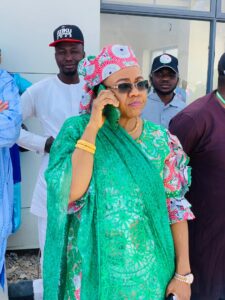
I was particularly disheartened to see healthy, capable women in their prime, yet uneducated and unempowered, unable to even manage small businesses they could run from home. Women in politics must rise above these stereotypes and prejudices to create meaningful change.
Also, coming from a minority tribe posed another challenge. It made gaining widespread acceptance and support even more difficult.
NP: Despite these challenges and failing twice, what keeps you going?
I keep going because persistence is the only way to change people’s mindsets. Every time I contest, I see it as an opportunity to show that women have resilience and tenacity. By continuing to participate in politics, I hope to normalize the idea of women as leaders and gradually dismantle societal biases.
I firmly believe that with consistency, people will begin to see women in politics as normal, paving the way for a more inclusive political environment. I am driven by the hope of inspiring change and creating opportunities for other women who aspire to lead.
With all these commitments, how do you rest?
To be honest, I didn’t have much time to rest when I was a governor’s wife, raising babies, schooling, and later contesting. My body got used to working 24/7. I would receive calls and attend to guests at odd hours, and my kids were very clingy, often relying on me for everything. But now, all that is in the past. My kids are grown up, I’m done with schooling, and life has slowed down. These days, I have time to rest. I even sleep in until 11 a.m. after my morning devotion. No pressure, no emergencies.
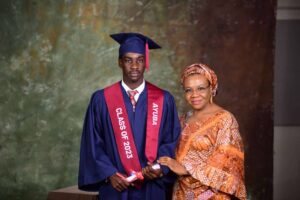
What is your favorite food?
I wouldn’t say I have a favorite food anymore. What matters to me now is eating healthy. I’ve cut out carbs and sugars and focused on a diet of veggies and proteins.
What advice do you have for Women in Politics?
Women in politics should work hard and rise above challenges. We must prove that we are capable and deserving of leadership positions. While I am not gender-biased, I strongly believe in equal opportunities for everyone, regardless of gender. Just as there are competent and hardworking men, there are equally competent and hardworking women. Leadership should be about qualities like competence, dedication, and vision, not gender.
When educating or empowering a child, we must provide equal opportunities for both boys and girls. I don’t subscribe to the idea that “what a man can do, a woman can do even better.” My philosophy is that “what I can do, you may not be able to do, and what you can do, I may not be able to do. Let’s work together to create something incredible.”
READ ALSO: Dr. Fatima Sule Muhd, the brain behind Instant Miyar Kuka
Women make up over 60% of our population. How can we expect to become a developed nation if more than half of the population is not empowered or educated? Women must be active participants in shaping our nation’s future.
What is your advice for youth in politics
Everyone, regardless of gender, religion, or age, should participate in politics—it’s not optional. Politics affects our daily lives in profound ways. For example, the recent hikes in food and transportation costs are political decisions that impact every citizen, whether they voted or not.
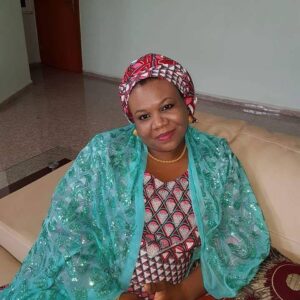
Since voting is our system for choosing leaders, we all must actively participate in electing those we believe can lead us effectively—leaders who will enact policies to improve our lives. Politics is not reserved for a specific group; it involves all of us because our nation’s well-being depends on political decisions and policies.
To the youth: If you feel sidelined in politics, you need to prove your worth. Show patience, resilience, trustworthiness, capacity, endurance, and the right attitude. Understand that politics is not a shortcut to wealth. It is a platform to represent and serve people.
As elders and experienced politicians, we must mentor the youth, guiding them to be upright, transparent, and service-driven leaders.
In the last election, I was impressed by the active participation of youth and women. They came out in large numbers, made their voices heard, and cast clean votes. This is a sign of progress, and I appreciate this new level of engagement and effort. It shows that we are moving in the right direction.
NP: Thank you very much for this rich and educational interview. We have learned a lot
A pleasure
Follow the Neptune Prime channel on WhatsApp:
Do you have breaking news, interview request, opinion, suggestion, or want your event covered? Email us at neptuneprime2233@gmail.com

